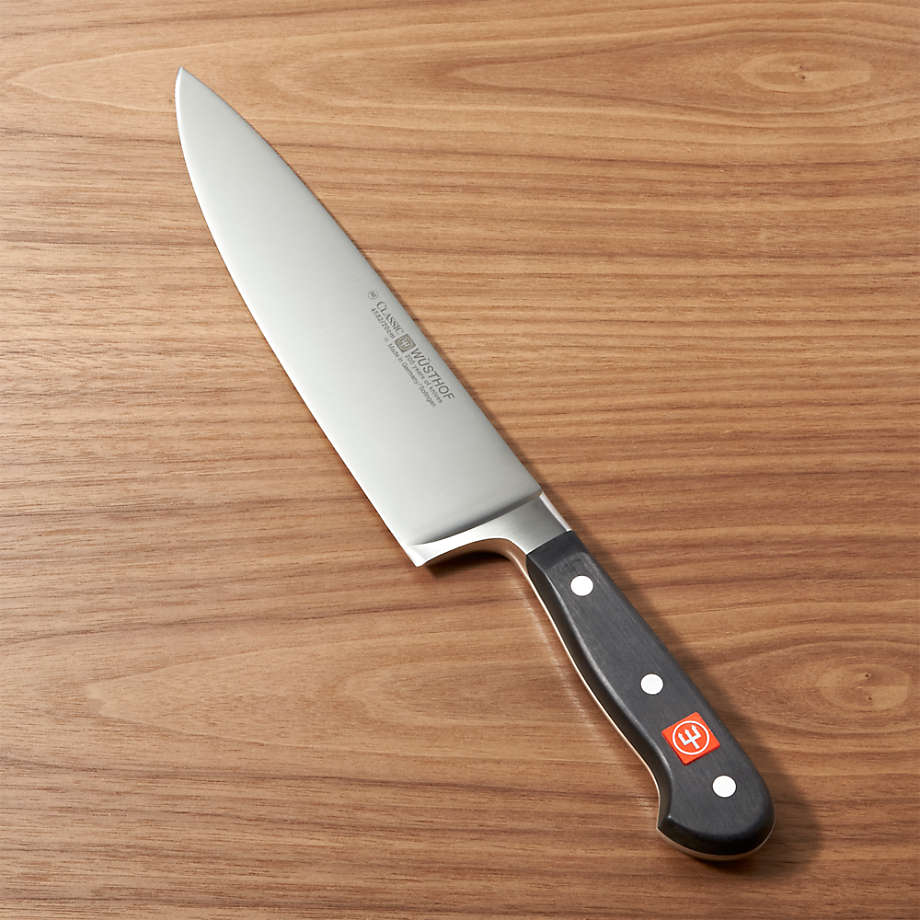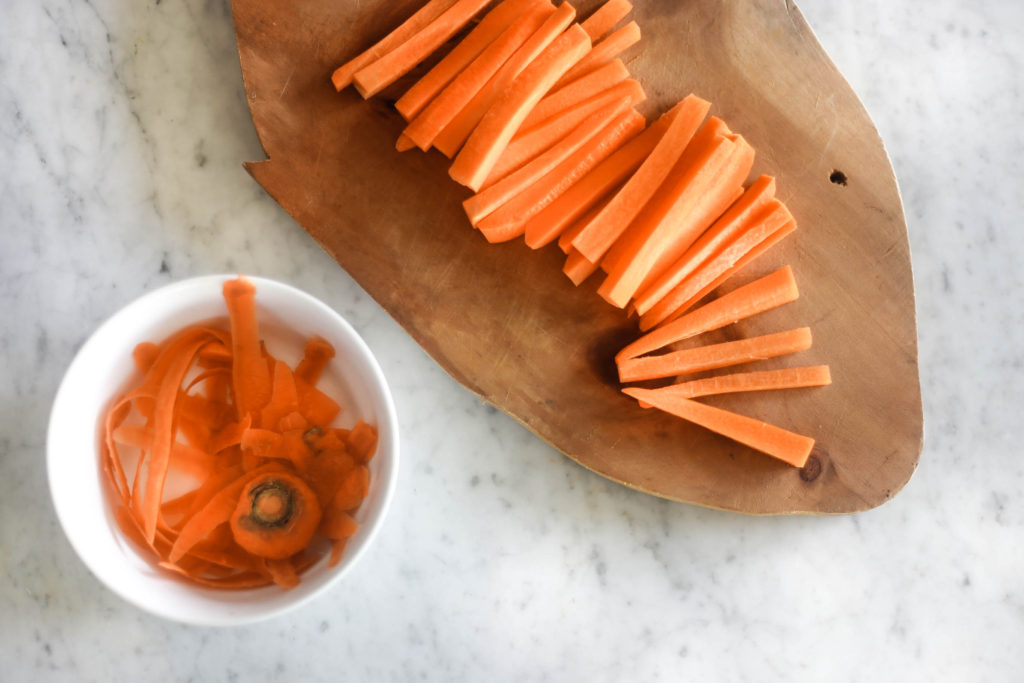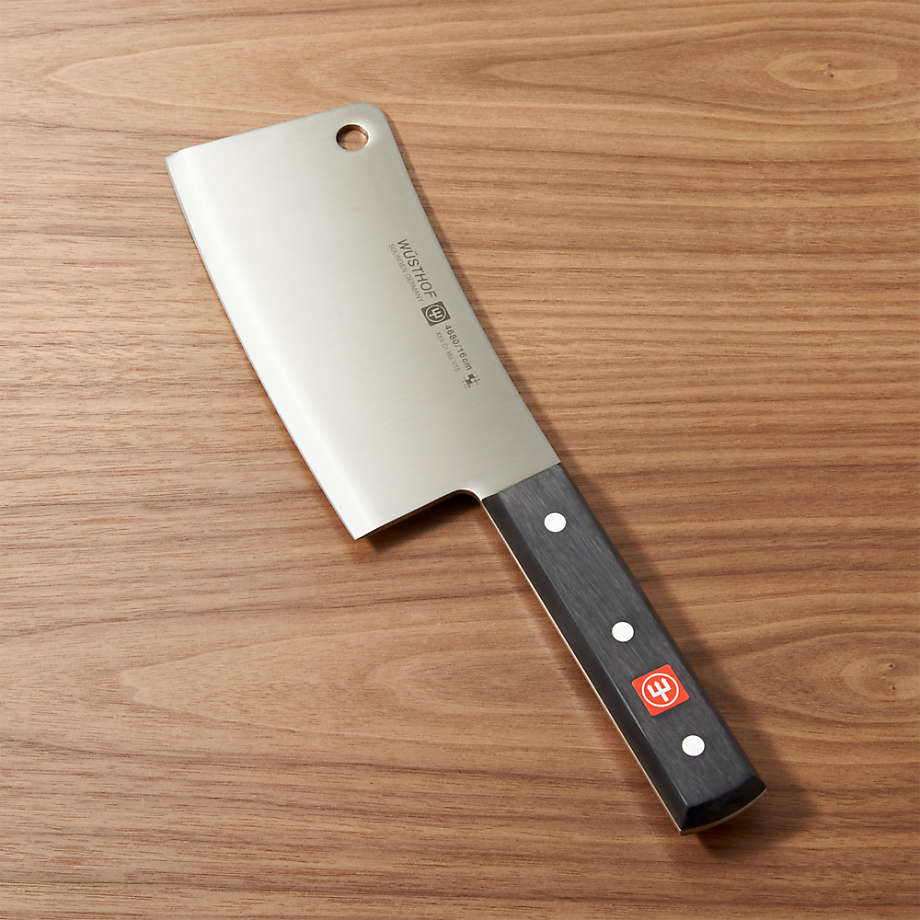
Chef's Knife
With their scalloped, toothlike edge, are ideal for cutting through foods with a hard exterior and softer interior, such as a loaf of crusty bread.
Serrated Knife

Stick/Batonnet
What is the position called that the guiding hand should be in when cutting?
The Claw
:max_bytes(150000):strip_icc():format(webp)/santkedge1-400-56a20dae3df78cf772716a5d.jpg)
Blade

Paring Knife
Between 2 inches and 5 inches long, use it for peeling and slicing small food items like fruits and vegetables
Paring Knife

Julienne
What should go underneath your cutting board to stabilize it?
A wet towel or rag.
:max_bytes(150000):strip_icc():format(webp)/handle400-56a20db03df78cf772716a7a.jpg)
Handle

Serrated Knife
Multi-purpose kitchen knives that are typically about 8 inches long and made from a combination of stainless steel and carbon steel.
Chef's Knife

Baton Cut
How should your knives be washed
Hand Washed
:max_bytes(150000):strip_icc():format(webp)/bolster1-400-56a20daf3df78cf772716a74.jpg)
Bolster

Granton Blade Santoku
Has a series of oval dimples along the knife blade. This helps to reduce friction/drag when slicing and more impressively – to reduce food from sticking to the knife
Granton Blade Santoku

Dice Cut
Why does your knife need to be very sharp?
This makes it easy to control how the blade moves through the food, giving you control over your chopping or slicing. A dull blade will slip, which makes control difficult and increases the risk that it will slip into your finger
:max_bytes(150000):strip_icc():format(webp)/fulltang400-56a20db03df78cf772716a77.jpg)
Tang

Cleaver
It is largely used as a kitchen or butcher knife and is mostly intended for splitting up large pieces of soft bones and through thick pieces of meat.
Cleaver

Brunoise
Why should you slice off a small bit of potato on the side before you start cutting?
To stabilize the potato
:max_bytes(150000):strip_icc():format(webp)/htang400-56a20daf3df78cf772716a64.jpg)
Rivet